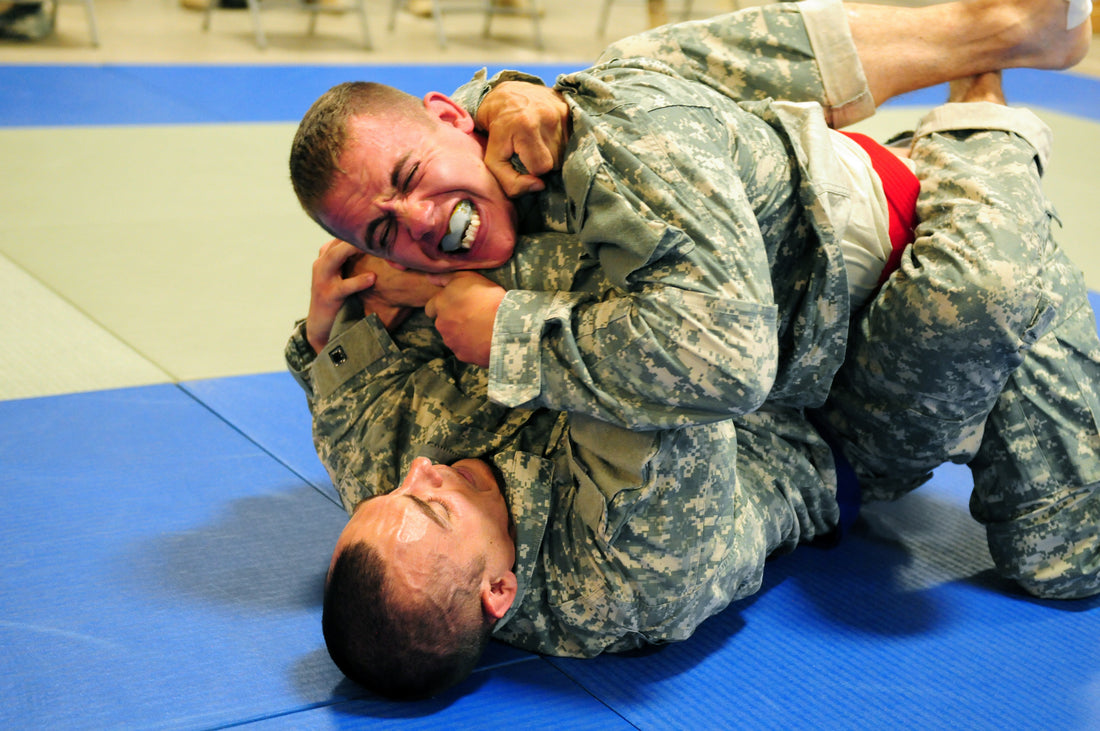Depression is a common mental health issue among military veterans. According to a study by the Department of Veterans Affairs, about 11% to 20% of veterans who served in Operation Iraqi Freedom or Enduring Freedom have experienced depression. Depression can affect a person's quality of life, including their ability to function in daily activities. However, Brazilian Jiu-Jitsu (BJJ) has emerged as a promising tool in combatting depression in military veterans. In this article, we will explore how Jiu-Jitsu can help veterans cope with depression.
The Physical and Mental Benefits of Jiu-Jitsu:
BJJ is a form of martial arts that involves grappling, ground fighting, and submission holds. The physical activity involved in BJJ can release endorphins, which are natural chemicals in the body that promote feelings of pleasure and well-being. Endorphins can help reduce the symptoms of depression, such as fatigue, low mood, and poor appetite.
Moreover, BJJ provides an outlet for releasing pent-up frustration or aggression that can easily build up in veterans who have experienced trauma. Training can help reduce muscle tension brought on by stress, and this, in turn, lessens the mental impact of stress.
BJJ also helps veterans train their minds to focus on the present and control their thoughts. When practicing Jiu-Jitsu, one has to be completely present in the moment, focusing on the techniques and movements. This can be a powerful tool for veterans who struggle with intrusive thoughts and flashbacks.
The Sense of Community and Camaraderie in Jiu-Jitsu:
One of the key benefits of practicing Jiu-Jitsu is the sense of community and camaraderie that comes with it. Veterans who have served in the military often miss the sense of camaraderie they experienced while serving. BJJ provides a space for veterans to connect with others who share similar experiences and interests.
BJJ classes often involve partner drills and sparring, which can create a sense of teamwork and mutual support. Veterans can build relationships with their training partners and instructors, providing a sense of belonging and connection that can be critical in combatting depression.
The Life Skills and Positive Routines of Jiu-Jitsu:
BJJ is a life skill that can have a positive impact on veterans' lives beyond the training mat. Veterans who practice Jiu-Jitsu learn discipline, resilience, and perseverance, which are valuable life skills that can help combat depression.
BJJ training can also lead to healthy routines that positively impact veterans' lives in all aspects. Consistent training can help regulate sleep patterns, improve diet and nutrition, and provide a sense of structure and purpose.
Conclusion:
Jiu-Jitsu has emerged as a promising tool in combatting depression in military veterans. The physical and mental benefits, sense of community and camaraderie, and life skills and positive routines make it a powerful tool for veterans coping with depression. As more veterans are introduced to the benefits of Jiu-Jitsu, it is hopeful that the prevalence of depression among veterans will decrease, and more veterans can lead happy, healthy, and fulfilling lives.


